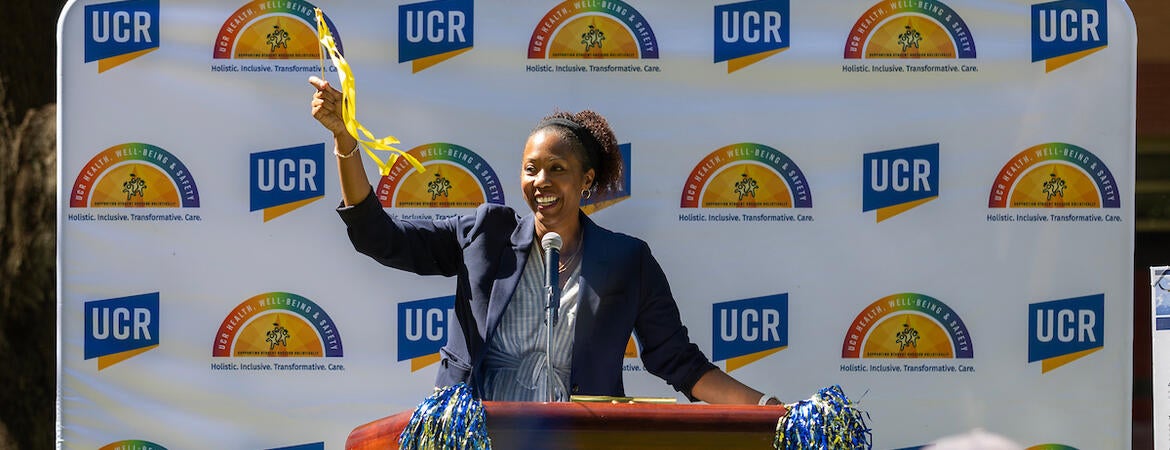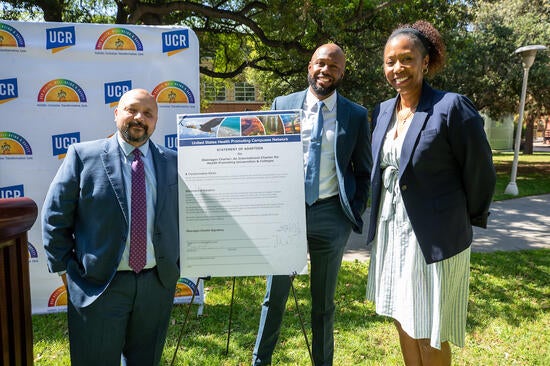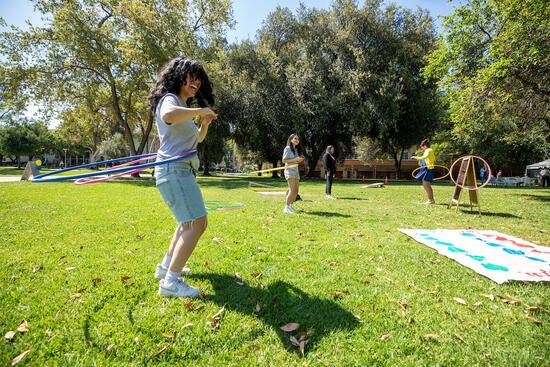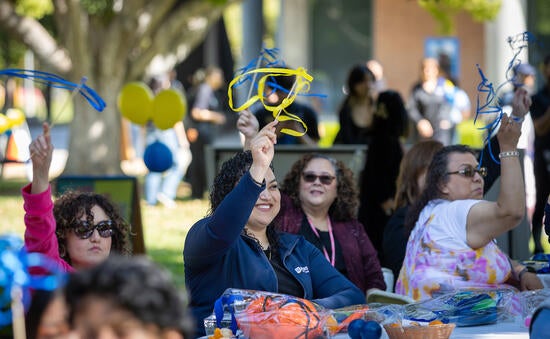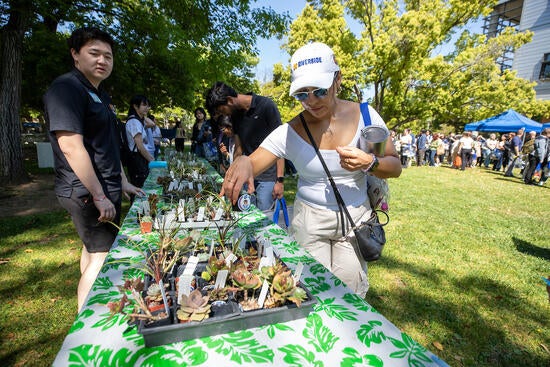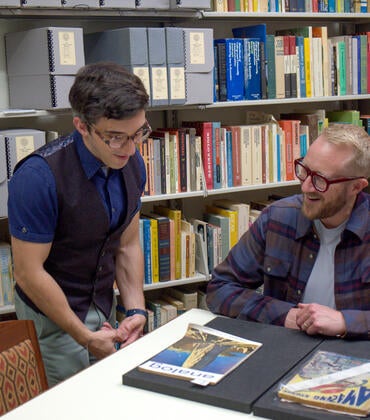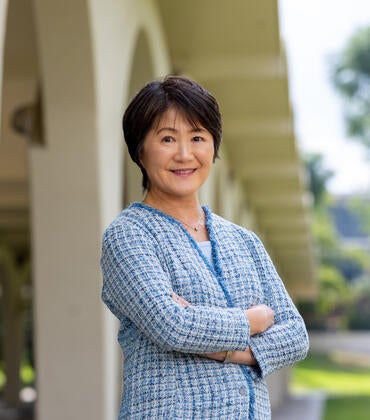UC Riverside has joined an international group of universities and colleges in adopting the Okanagan Charter, pledging to incorporate health and well-being into all aspects of campus policies and practices.
The campus marked UCR’s adoption of the principles in the document in a symbolic signing ceremony Tuesday, April 30 at Hinderaker Lawn. Chancellor Kim A. Wilcox formally signed the document, which provides signatories a set of principles and a framework to join the International Health Promoting Campuses Network, on April 1.
In an announcement last month, Wilcox said there are various ways the campus can put the pledge into action. One is to review campus policies and practices with attention to health, well-being, and sustainability. Another is to provide equitable access and opportunity for students and employees to thrive. As a research university, UCR can also contribute directly to healthy communities through research and innovation, he said.
The charter was created at the 2015 International Conference on Health Promoting Universities and Colleges in British Columbia. It’s named for the Okanagan Indigenous nation and region in British Columbia and Washington State.
UCR is one of the first 30 U.S. campuses to adopt the charter and one of four in the University of California system. UCLA, UC Berkeley, and UC Irvine have also signed onto the charter.
More than 400 people joined the celebration, which included free plants, back massages, games, a photo booth, and healthy snacks.
Denise Woods, vice chancellor of Health, Well-being and Safety, said the celebration helps plant the seeds for campus efforts promoting health for students, staff, and faculty. Joining the international charter reinforces the work UCR is already doing to center health and well-being while being part of a larger global effort, she said.
“It’s about prioritizing efforts related to the well-being of our campus community, to ensure that we are weaving health promotion strategies into the core makeup of our campus for students, faculty, and staff,” Woods said. “Being part of the Okanagan Charter felt like the right fit for where we are.”
Alex Najera, Associate Vice Chancellor and Chief Human Resources Officer, told students, staff, and faculty at the ceremony that he knew his division needed to be part of the effort when he learned about the charter.
“A central focus for us is to understand you are not simply employees, you are whole people with comprehensive needs,” he said. “We need to do everything we can to create an environment and conditions that help you thrive. It is central to our ethos.”
Woods, Najera, and Associate Chancellor Michael Richards signed a mock-up of the charter document at the ceremony.
“The charter provides us with more than just a set of guidelines,” Richards said. “It’s a framework for cultivating holistic development and empowerment across our community. It’s a call to action for us to integrate health into the very fabric of our campus community, transcending the traditional boundaries and silos at UC Riverside.”
Woods said its principles align with recent actions by UCR to take a holistic approach to health, which include the July 2021 creation of the Health, Well-Being and Safety Division, bringing together several departments, from police to counseling, under one umbrella overseen by Woods. Last year, the campus opened the Student Health and Counseling Center, which brought together medical, mental health, and well-being services at one convenient and modern location.
Prior to that, UCR Healthy Campus, part of the larger UC-wide Health Campus Network, created programs promoting a greater school- and work-life balance. Although funding for Healthy Campus ran out a few years ago, the campaign launched or supported programs such as a smoke- and tobacco-free campus, increased access to drinking water stations, better eating habits, and fitness activities.
Human Resources continues to provide regular wellness programs and services for faculty and staff through ongoing activities including webinars and a newsletter with tips.
“I liken this effort to Healthy Campus 2.0, because in a lot of ways we’re trying to build upon the momentum that was created during that era,” Woods said. “We’ve used the Healthy Campus model as a catalyst for the Okanagan Charter, in that we are committed to aligning and incorporating health practices and strategies into the mission and vision of the university, and specifically, all departments across our campus.”
Each charter member develops its own strategic plan for implementing health promotion on campus.
UCR has created five pillars inspired by the charter, detailing how it will advance campus health, well-being, sustainability, and equity. The pillars are: personal development for students and employees; campus policies and practices; local and global action; research and knowledge; and supportive environments.
The next step for UCR will be to create subcommittees and groups made up of students, faculty, and staff and organized around the different topics. Those groups will then help develop plans for how to accomplish the five pillars.
Part of the process will be aligning the charter’s recommendations with similar goals in UCR’s strategic plan, Woods said.
“We have several examples from each of the different pillars of actionable work that is happening now or currently in progress,” she said. “We’re also thinking innovatively about how we can develop programming and resources moving forward to continue supporting these pillars.”
